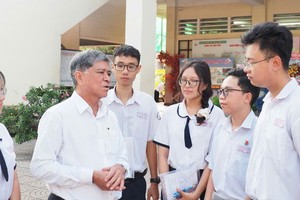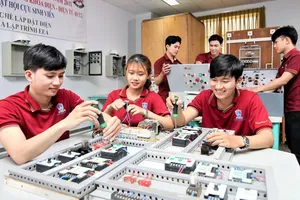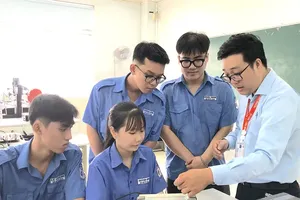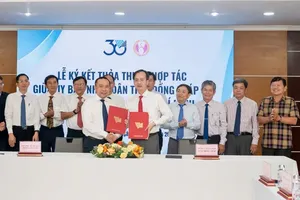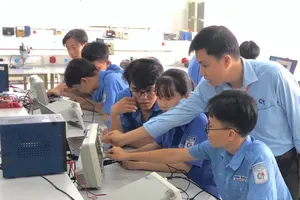Rural laborers must be trained properly so that they can secure jobs upon graduation and contribute to the country’s economic development, said Deputy Prime Minister and Minister of Education and Training Nguyen Thien Nhan.
Nguyen Tien Dung, head of the General Department of Vocational Training, said the department plans to train 430,000 rural workers in 2010. Beneficiaries of the project will comprise the poor, displaced farmers, and minorities.
The department will also outline plans for the years to follow based on the results of this year’s program, which was approved by the Prime Minister last November.
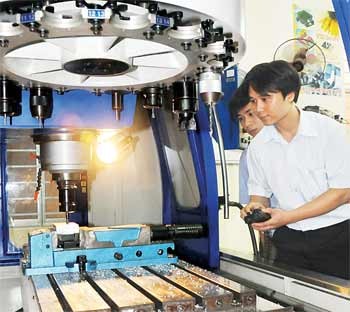
Accordingly, 5.2 million people living in rural areas, including 4.7 million farmers, will be trained in 2011-2015 and at least 70 percent of graduates will be given jobs.
In the five years to follow, six million people, including 5.5 million farmers, will be trained with an expected subsequent employment rate of 80 percent.
Total expenditure of the project is estimated at VND26 trillion (US$1.4 billion), including around VND1.9 trillion for 2010, sourced from the State budget.
However, the project will not achieve success unless proper steps are taken to ensure the project is feasible and effective, Minister of Agriculture and Rural Development Cao Duc Phat warned.
He said many potential trainees were unsure about which courses to take to ensure employment upon graduation.
The Ministry of Labor, War Invalids and Social Affairs has been assigned by the Government to develop the training project, but to date, the ministry has yet to determine the specific courses to be offered, Mr. Phat said.
The ministry has so far outlined just four general fields of training. The first comprises husbandry, forestry, fishery, and salt production; the second includes agricultural, forestry and fishery processing; the third encompasses water supply and drainage training, and rural environment hygiene; and the last includes agricultural management and services, he said.
The General Department of Vocational Training has also set up just a single plan to train 18,000 rural laborers, Mr. Phat added.
Training must match demand
Agriculture and Rural Development Deputy Minister Dao Xuan Hoc said rural laborers should be allowed to select their own training programs, and that the courses should focus on quality, not quantity.
Deputy PM Nhan said the project must meet rural labors’ diverse demands for vocational training, and thus, agencies should first research what those demands are. Only in this way can appropriate programs be offered, said the deputy PM.
The needs of businesses must also be carefully studied to ensure the training programs turn out qualified workers who suit the requirements of companies.
Before March 10, the ministries of Education and Training, and Labor, War Invalids and Social Affairs must announce the organizations that can offer training to rural laborers, said Mr. Nhan.
More importantly, training agencies must ensure program quality and help individuals find jobs after graduation, he added.
